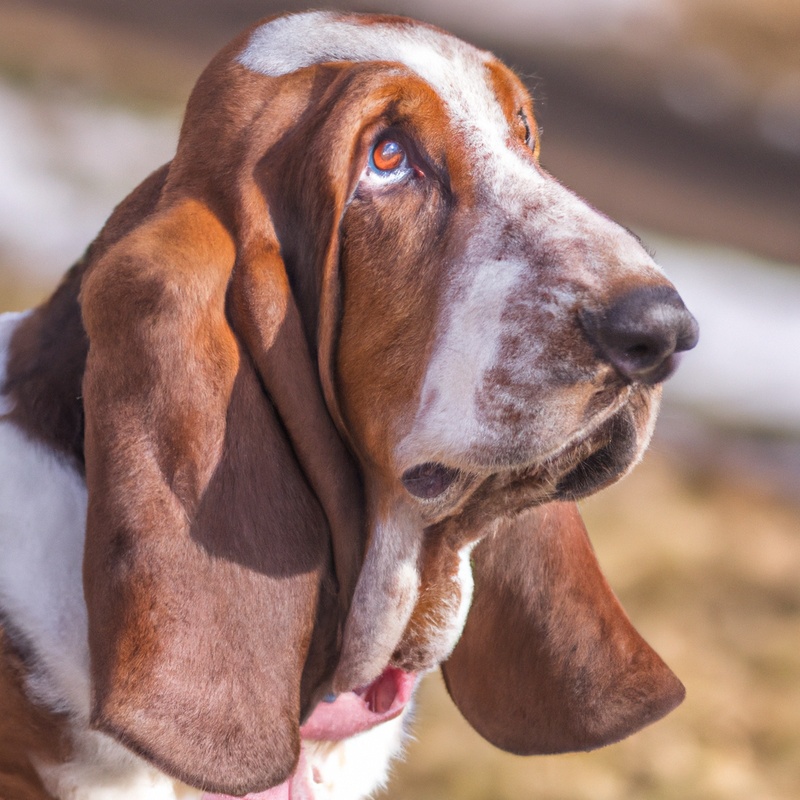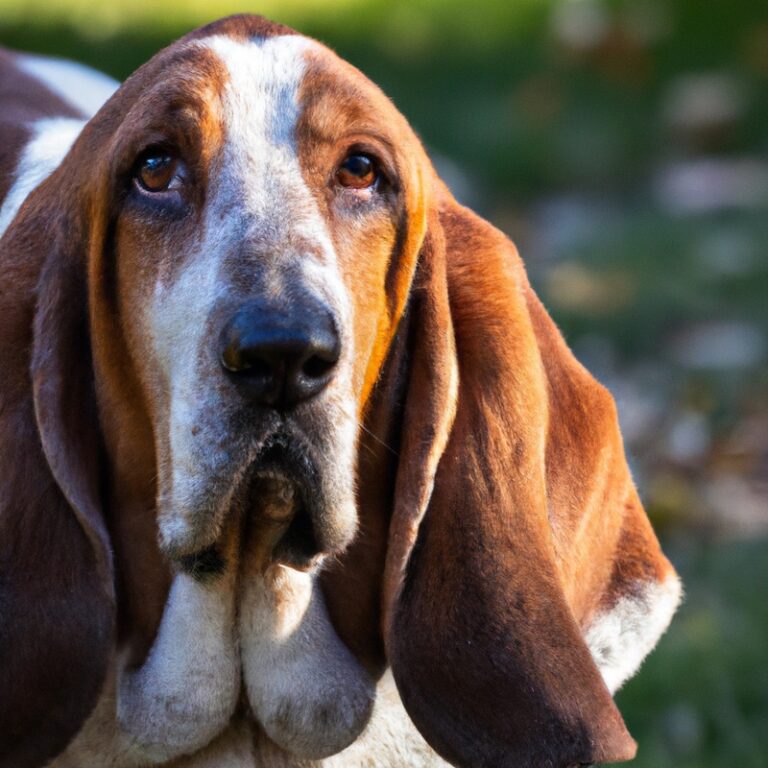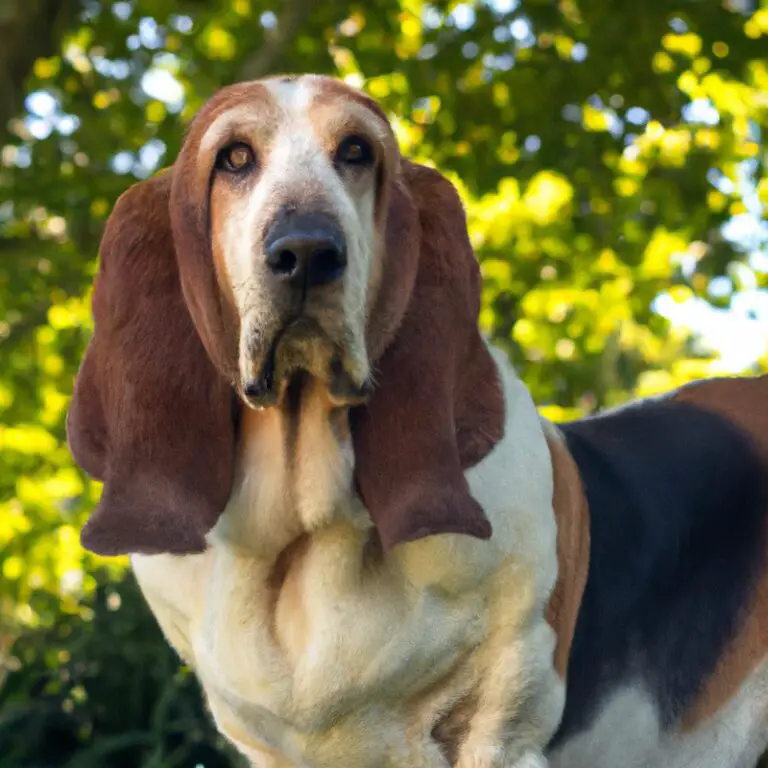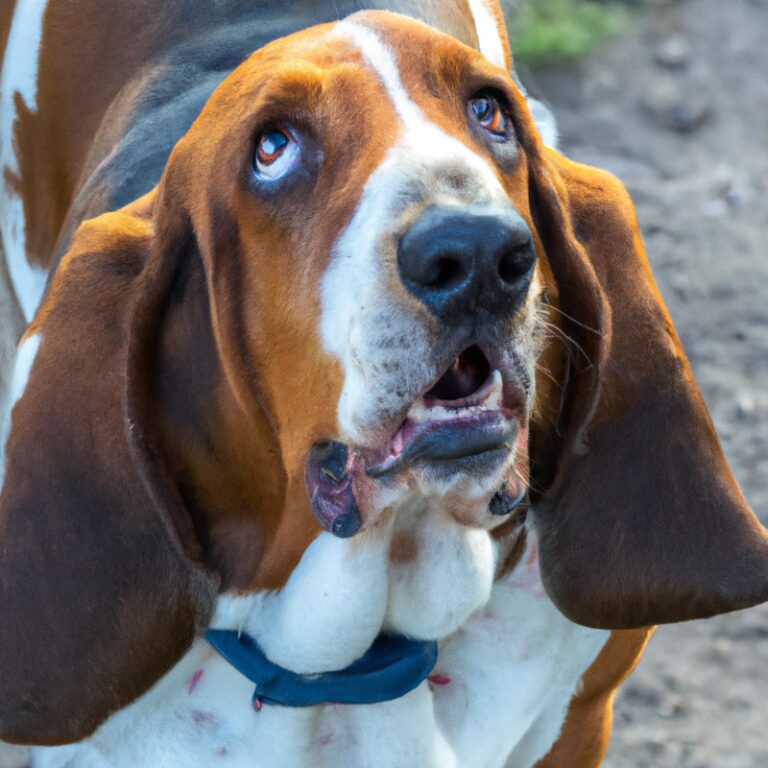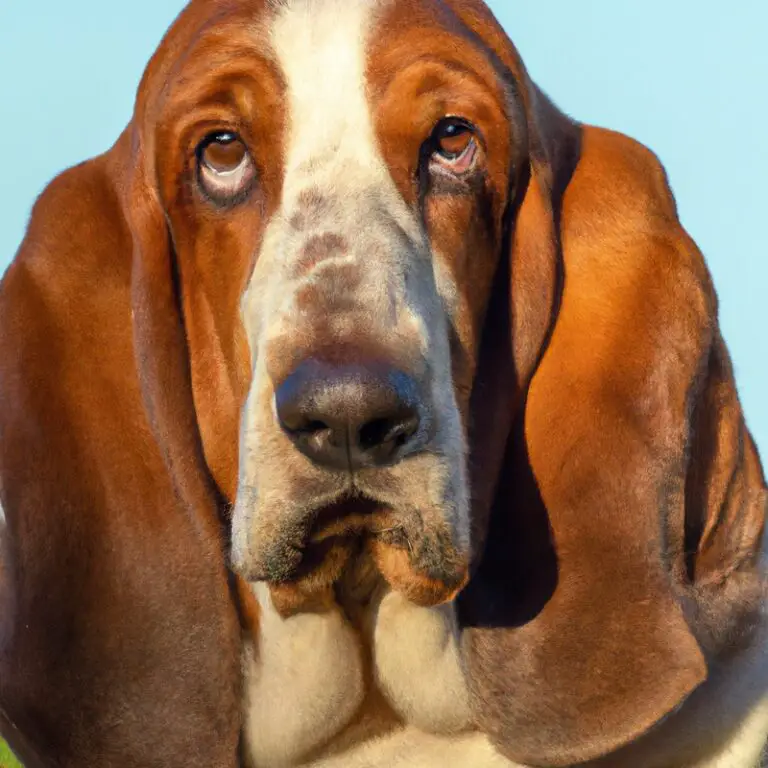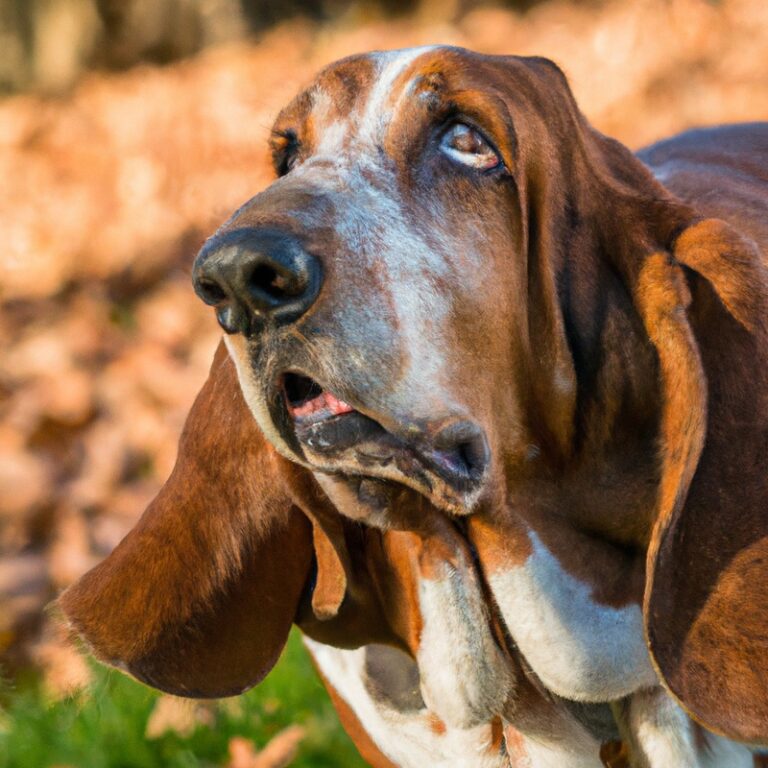Are Basset Hounds Prone To Excessive Snoring, Drooling, Howling, Digging, And Chewing?
Key Takeaways:
- Basset Hounds are known for their excessive snoring and drooling.
- Howling is a common behavior in Basset Hounds.
- Basset Hounds have a tendency to dig in certain situations.
- Chewing is a natural behavior for Basset Hounds, but it can be managed through proper training.
Do you ever wonder if Basset Hounds are the clowns of the dog world? With their adorable droopy ears, sad eyes, and comically long bodies, it’s hard not to fall in love with these lovable goofballs.
But are they prone to certain behaviors like excessive snoring, drooling, howling, digging, and chewing?
In this article, I’ll uncover the truth behind these traits and share some tips on how to manage them. So, if you’ve ever questioned why your Basset Hound snores louder than your grandpa or why they love to dig up your garden, this is the article for you.
Get ready to dive into the world of these delightful and sometimes mischievous dogs!
| Breed Characteristics | Yes | No |
|---|---|---|
| Excessive Snoring | ✓ | |
| Excessive Drooling | ✓ | |
| Excessive Howling | ✓ | |
| Excessive Digging | ✓ | |
| Excessive Chewing | ✓ |
Snoring: Is it a Common Trait in Basset Hounds?
The Physiology Behind Basset Hounds’ Snoring
Basset Hounds’ physiology contributes to their snoring tendencies.
Their unique facial structure, with a deep chest and loose skin, can restrict airflow, leading to snoring.
The shape of their elongated soft palate and uvula can also contribute to snoring.
Additionally, their large nasal passages and floppy ears can further obstruct airflow and create snoring sounds.
Understanding their physiology can help us manage their snoring and ensure their comfort and well-being.
Tips for Managing Basset Hounds’ Snoring
If your Basset Hound snores excessively, there are a few tips you can try to help manage their snoring. Firstly, consider their sleeping position.
Elevating their head with a pillow or raising their bed can help.
Secondly, keep their weight in check, as obesity can contribute to snoring. Thirdly, ensure their environment is free from allergens and irritants.
Regular exercise can also help with snoring.
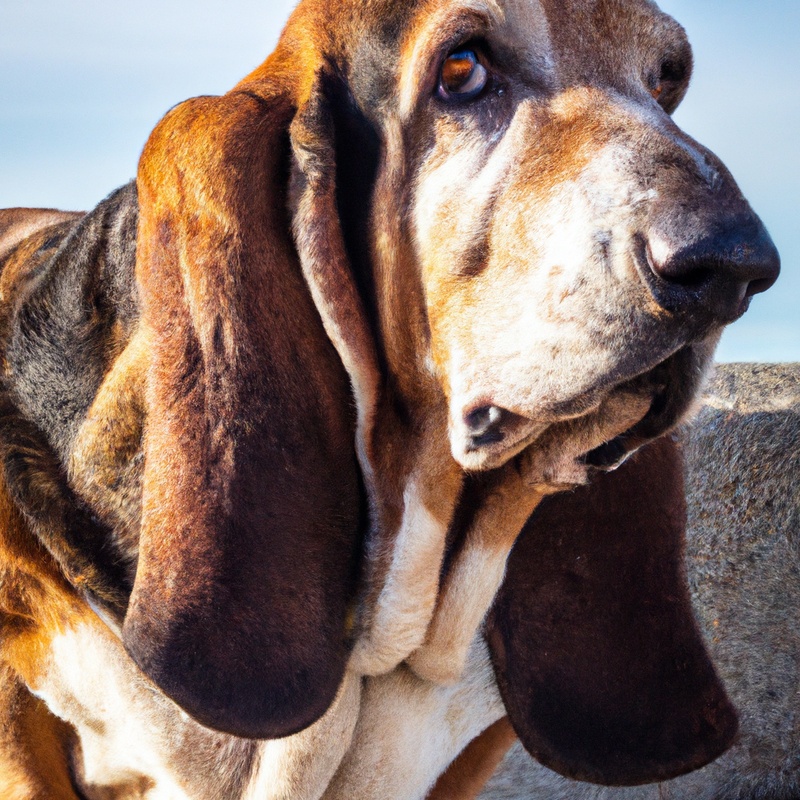
Drooling: Exploring Basset Hounds’ Slobbering Habits
The Reasons Behind Basset Hounds’ Excessive Drooling
Basset Hounds are notorious for their excessive drooling, and there are a few reasons behind this slobbery behavior.
Firstly, their loose lips and jowls cause saliva to accumulate and drip down.
Secondly, Basset Hounds have a tendency to eat and drink quickly, leading to more drool.
Thirdly, their breed is prone to having more saliva production compared to other dogs.
To manage their drooling, it’s important to keep a towel handy and regularly wipe their mouth.
Providing them with a well-balanced diet and avoiding stress can also help reduce drooling.
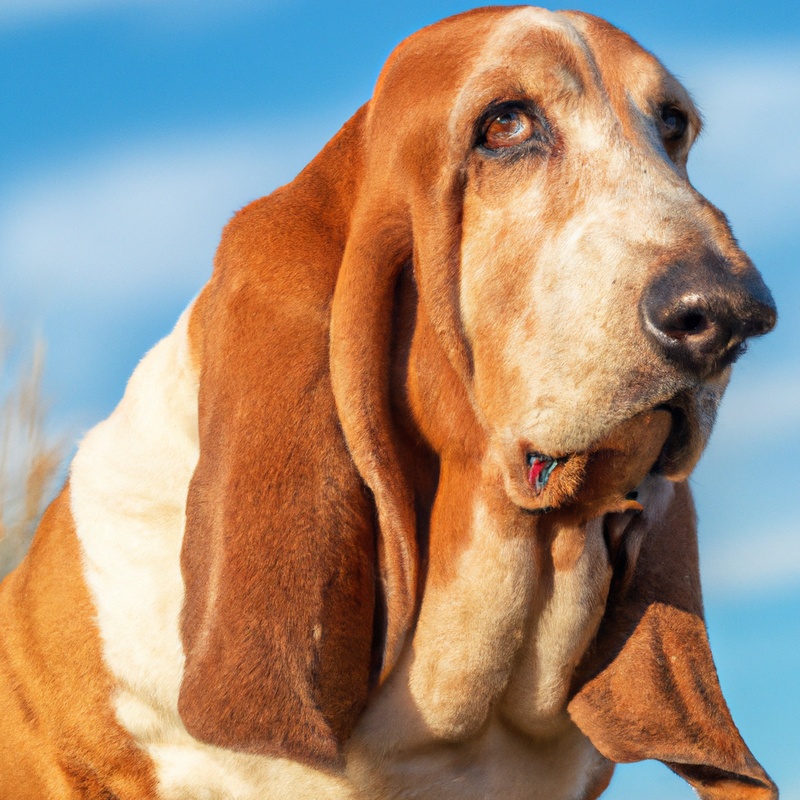
Ways to Deal with Basset Hounds’ Drooling
To deal with Basset Hounds’ drooling, here are some effective strategies:
- Keep a drool towel handy: Keep a dedicated towel or cloth nearby to wipe their drool. This can help minimize messes and keep your floors and furniture clean.
- Use doggy bibs or specialized drool garments: Consider using specialized bibs or clothing designed to catch and absorb drool. This can protect your Basset Hound’s neck and chest from excessive wetness.
- Regular grooming: Regularly grooming your Basset Hound can help maintain their skin health and reduce drooling. Brushing their coat and cleaning their facial folds can prevent excess moisture buildup.
- Provide access to fresh water: Ensuring your Basset Hound has easy access to fresh water can help prevent dehydration, which can worsen drooling. Make sure their water bowl is easily accessible and filled throughout the day.
- Consult a veterinarian: If your Basset Hound’s drooling seems excessive or unusual, it’s always a good idea to consult with a veterinarian. They can assess your dog’s health and provide any necessary treatment or advice.
Remember, while Basset Hounds are known for their drooling, these strategies can help manage and minimize the mess.
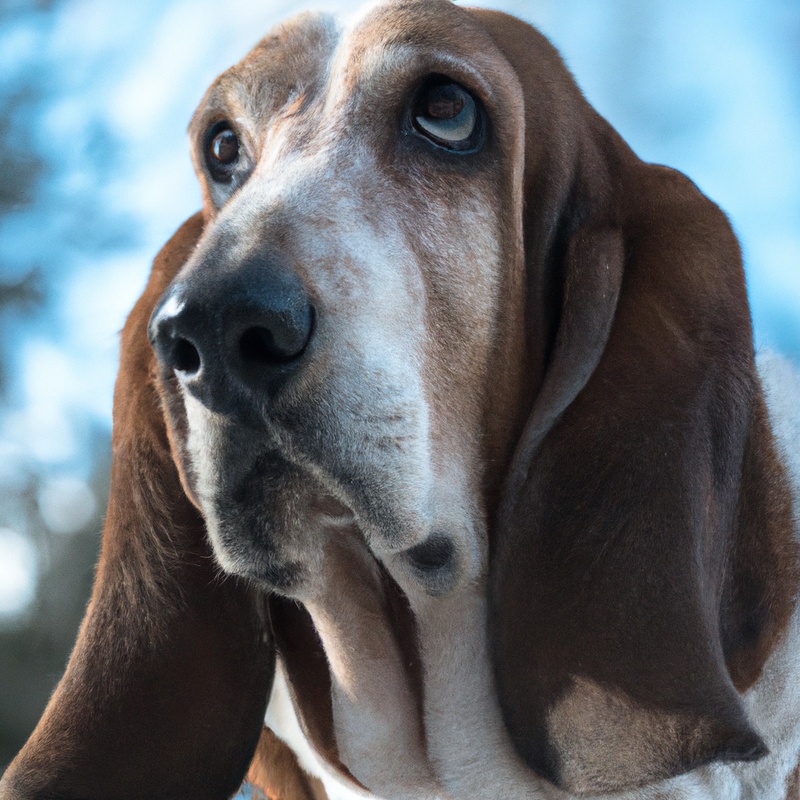
Howling: Why Basset Hounds Love to Howl
The Instincts and Behaviors that Trigger Basset Hounds’ Howling
Basset Hounds have a natural instinct to howl, which is triggered by various behaviors and situations.
One of the main reasons they howl is to communicate and express their emotions.
They may howl when they are lonely, anxious, or seeking attention.
Basset Hounds also have a strong sense of smell and may howl in response to certain scents or sounds.
Additionally, they may howl when they are excited or in response to other dogs howling.
Understanding these triggers can help manage and redirect their howling behavior.
Managing Basset Hounds’ Howling Behavior
Managing a Basset Hound’s howling behavior can be challenging, but it’s not impossible. Here are a few tips to help you deal with excessive howling:
- Identify the triggers: Pay attention to what sets off your Basset Hound’s howling. Is it boredom, loneliness, or a response to certain noises?
- Provide mental and physical stimulation: Engage your Basset Hound in regular exercise and interactive play to keep them mentally and physically stimulated, reducing the need to howl.
- Create a calm environment: Establish a peaceful and secure area for your Basset Hound. Use calming music or white noise to drown out external noises that may trigger howling.
- Positive reinforcement: Reward your Basset Hound with treats or praise when they remain calm and quiet, reinforcing good behavior.
- Seek professional help if needed: If the howling persists despite your efforts, consult a professional dog trainer or veterinarian for further guidance.
Digging: Unpacking Basset Hounds’ Digging Obsession
Understanding the Reasons Behind Basset Hounds’ Digging
Basset Hounds have a natural instinct to dig, rooted in their ancestral hunting behavior.
Here are some reasons behind their digging habits:
- Scent tracking: Bassets have a keen sense of smell and love to follow scents. Digging allows them to uncover interesting scents and explore their surroundings.
- Escape: Basset Hounds may dig to escape from an enclosed space or to find relief from boredom or anxiety.
- Cool down: Digging in the earth can help Bassets cool down on hot days by finding cooler ground.
- Burrowing instinct: Bassets have a natural instinct to burrow and create comfortable, den-like spaces to rest.
Understanding these reasons can help you address your Basset Hound’s digging behavior with appropriate training and redirection techniques.
Strategies for Curbing Basset Hounds’ Digging Behavior
To curb your Basset Hound’s digging behavior, here are some strategies you can try:
- Provide sufficient exercise: Make sure your Basset Hound gets enough physical activity and mental stimulation through daily walks, playtime, and interactive toys. A tired dog is less likely to dig out of boredom.
- Create a designated digging area: Set up a specific spot in your yard where your Basset Hound is allowed to dig freely. Fill it with loose soil or sand and encourage digging only in that area. Reward your dog when they choose to dig there.
- Supervise and redirect: Keep a close eye on your Basset Hound when they are outside and redirect their attention to other activities, such as fetching, puzzle toys, or training exercises, whenever they start to dig in unwanted areas.
- Secure your yard: Ensure that your yard is properly fenced to limit your Basset Hound’s access to areas where they like to dig, such as flower beds or vegetable gardens. Consider using chicken wire or rocks to reinforce areas they are prone to digging.
- Provide mental stimulation: Basset Hounds are intelligent dogs that benefit from mental challenges. Engage them in puzzle toys, obedience training, or scent games to keep their minds occupied and reduce the urge to dig.
Remember, patience and consistency are key when addressing your Basset Hound’s digging behavior.
By implementing these strategies, you can help redirect their energy and save your yard from unwanted holes.
Chewing: Explaining Basset Hounds’ Propensity for Chewing
The Reasons Behind Basset Hounds’ Chewing Habits
Basset Hounds have a natural instinct to chew, which can be attributed to a few reasons.
Firstly, chewing is a normal behavior for dogs, as it helps to alleviate boredom, reduce anxiety, and provide mental stimulation.
Secondly, Basset Hounds have strong jaws and sharp teeth, making them skilled chewers.
Thirdly, their sense of smell is highly developed, and chewing allows them to explore and interact with their environment.
To prevent destructive chewing, it is important to provide appropriate chew toys, maintain a consistent exercise routine, and ensure they are mentally stimulated.
Preventing and Redirecting Basset Hounds’ Destructive Chewing
Preventing and redirecting Basset Hounds’ destructive chewing can be achieved with a few simple strategies.
First, provide your Basset Hound with plenty of appropriate chew toys to satisfy their natural chewing instinct.
Next, puppy-proof your home by removing any items that could tempt them to chew.
If you catch your Basset Hound chewing on something they shouldn’t, calmly redirect their attention to a chew toy.
Consistency is key in teaching them what is acceptable to chew on.
Finally, consider using bitter-tasting sprays or deterrents on furniture or other items to discourage chewing.
Final Verdict
Basset Hounds are indeed prone to excessive snoring, drooling, howling, digging, and chewing due to various physiological and behavioral factors.
Their unique anatomy and instinctive traits contribute to these behaviors.
However, there are effective ways to manage and mitigate these issues.
Providing proper training, exercise, mental stimulation, and using positive reinforcement techniques can help in curbing the unwanted behaviors.
It’s important to understand that these traits are natural to the breed, and with patience, consistency, and understanding, we can find harmony with our beloved Basset Hounds.

